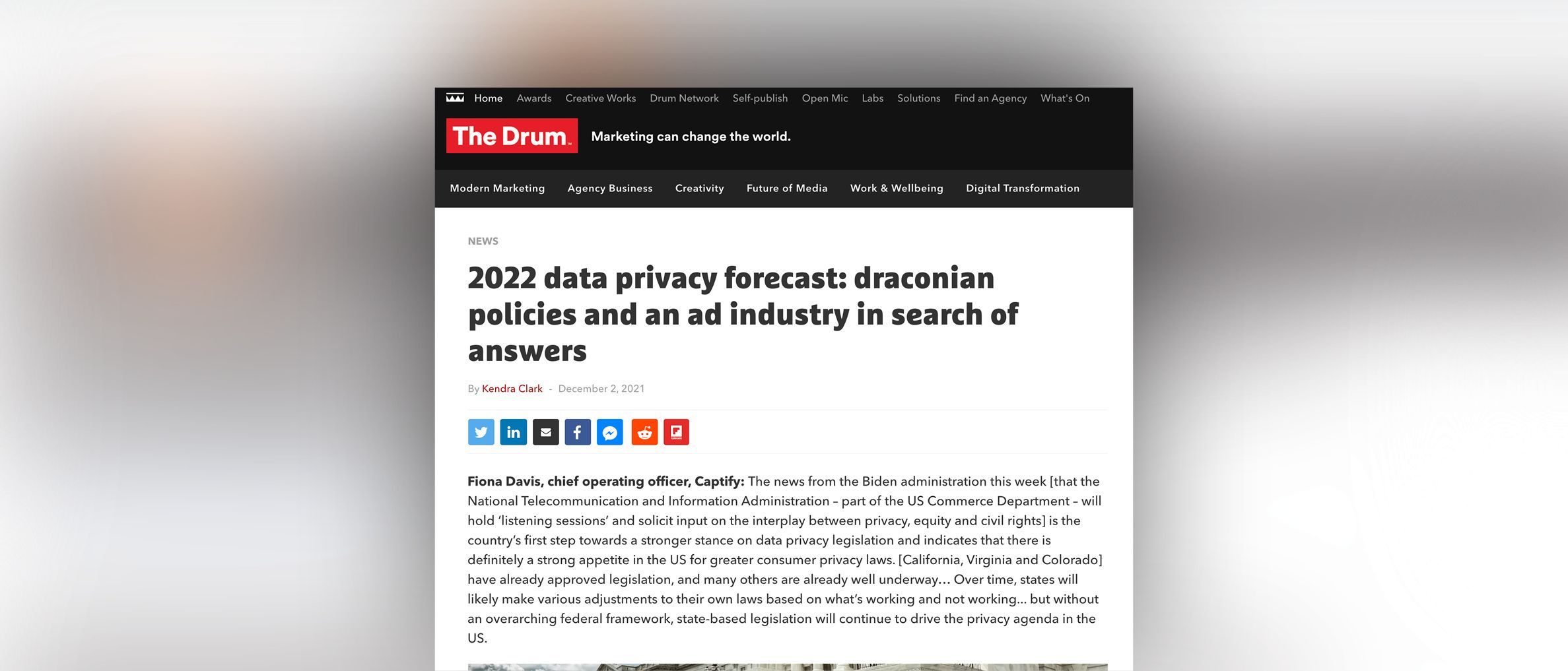The Drum: 2022 Data Privacy Forecast—Draconian Policies And An Ad Industry In Search Of Answers
Extracted from The Drum, Author Kendra Clark
On the heels of a handful of developments across the globe, including new data protection bills signed into law by both China and Saudi Arabia, experts speculate on how the data privacy legislative landscape will shape up in the coming year and beyond.
As 2021 draws to a close, Canada, Vietnam, South Korea and a smattering of countries around the world are reviewing proposed data privacy bills. India this summer introduced a new data protection bill, while recent amendments to Japan’s Act on the Protection of Personal Information will go into effect early next year and Australia is in the process of amending its 1988 privacy legislation. In the US, more than 25 state-level data privacy bills remain in limbo in committees across the country. Even with so much momentum, however, data privacy bills and amendments in the US and abroad are generally difficult to pass and sign into law. The pace of regulatory action lags far behind the pace of most market movements – and in lieu of comprehensive, consent-based data privacy laws on the national level, tech companies like Apple and Google are increasingly setting the ground rules for consumer data privacy and advertising industry groups are setting their own self-regulating standards. The Drum surveyed a handful of experts about what’s next for data privacy legislation. Here’s what they said.
Prediction 1: US federal legislation, though desired, remains a long shot
Fiona Davis, chief operating officer, Captify: The news from the Biden administration this week [that the National Telecommunication and Information Administration – part of the US Commerce Department – will hold ‘listening sessions’ and solicit input on the interplay between privacy, equity and civil rights] is the country’s first step towards a stronger stance on data privacy legislation and indicates that there is definitely a strong appetite in the US for greater consumer privacy laws. [California, Virginia and Colorado] have already approved legislation, and many others are already well underway… Over time, states will likely make various adjustments to their own laws based on what’s working and not working… but without an overarching federal framework, state-based legislation will continue to drive the privacy agenda in the US.
Want to find out more? Read the full article on The Drum.



